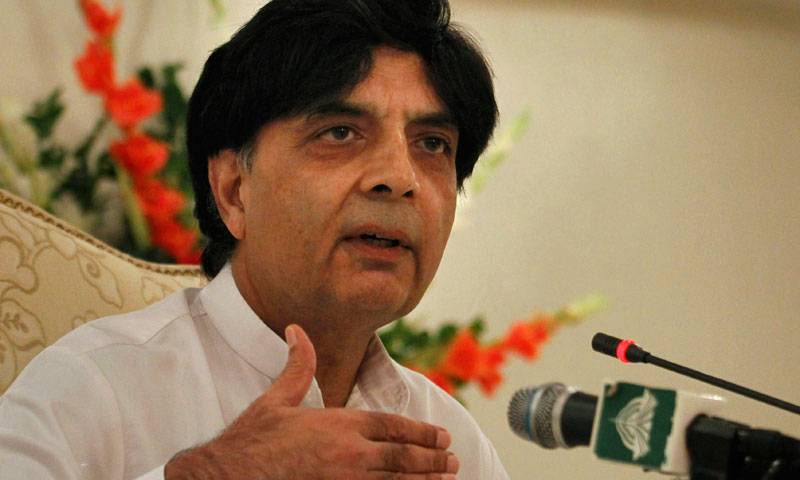D-chowk” – colloquially used to refer to the space starting from the parade boulevard to the gates of the National Assembly building in the capital – has become entity in itself. Yet for the PML-N government the entity has been nothing but trouble. First the PTI-PAT combination settled down for good at D-chowk, chanting revolution and defiance and now pro-Qadri fanatics tried to emulate the same. There is no doubt; a protest at D-chowk will get you attention. According to the government however, it gets you too much attention.
The Interior Minister, Chaudary Nisar, on Friday directed the Capital Development Authority (CDA) to rebuild the D-chowk immediately to make it ‘no go’ area for protestors in future. Objectively, the logic of the move is sound; Islamabad was paralyzed when protesters descended on D-chowk and the media was forced to focus – disproportionately – on the crowd. After all, raging protestors were literally on the gates of the parliament. A small group of people shouldn’t be allowed to hold the nation hostage – but rebuilding D-chowk isn’t the simple solution it seems to be.
Firstly, the government must consider that fact that physical barriers have never managed to stop the protestors before, a committed and resolute security force has. The containers were climbed above and the fences were scaled. Without a professional and dedicated riot force, the new defenses would be just as leaky.
Secondly, how exactly will the area be rebuilt, and how much of the original structure will remain? D-Chowk has become a symbol of defiance only because the parade boulevard and the parliament approach has been a symbol of the state’s strength and majesty.
Deforming it to protect it would be cruelly ironic. Furthermore, each state needs an expansive and beautiful vista where it’s seat of power rests – it instills the gravity of their jobs for all who work there. A barbed wire covered monstrosity would be an eyesore and symbolic of a state under siege. The historical parade boulevard must be protected, even if it means risking another D-chowk breach.
Finally, the government must realise that no matter how strong the build the defenses around the parliament, the protesters will protest somewhere. If they can’t occupy D-chowk they will chose some other part of the city – an act that will be equally disruptive.
While it makes sense to make D-chowk a less easy target the Interior Ministry must recognise that it would be better off investing in a professional and modern riot control force.






